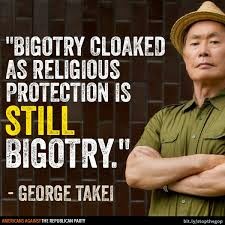Caitlin MacNeal at TPM:
Man Who Videoed S.C. Cop Shooting: I Thought My Life 'Might Be In Danger'
Feidin Santana, the witness whose video led to murder charges against a South Carolina police officer, spoke out on Wednesday for the first time since the incident and said that he was so scared he thought about deleting his recording.
"I even thought about erasing the video," he said during an interview on MSNBC with Craig Melvin. "I felt that my life, with this information, might be in danger.”
...
Is Santana's fear justified?
Most photographers who have often wandered the streets looking for interesting material have confronted a question like this at one time or another. While toting my camera, I've never confronted a cop, but I've confronted an angry business owner who didn't like my taking pics of his storefront sign even though I was standing on the city sidewalk in front of his business. I faced the man down and demanded that he call the cops; he repeatedly refused to do so, perhaps knowing that he hadn't a leg to stand on. (Now
I'm the one... oh, never mind!)
But that was an easy case. I knew my rights, and the business owner was an ordinary asshole, not an asshole credentialed by the city to put lead in my back. If I had been in Santana's circumstance, I'd have felt the same doubts he did.
So what are your rights in the streets with a camera, still or video?
Let's let ACLU tell us. The good news: courts have ruled you have rights. The bad news: they're not absolute. Here's what ACLU says, quoted directly from their article on the subject:
(Updated July 2014)
Taking photographs of things that are plainly visible from public spaces is a constitutional right – and that includes federal buildings, transportation facilities, and police and other government officials carrying out their duties. Unfortunately, there is a widespread, continuing pattern of law enforcement officers ordering people to stop taking photographs from public places, and harassing, detaining and arresting those who fail to comply. Learn more »
Your rights as a photographer:
- When in public spaces where you are lawfully present you have the right to photograph anything that is in plain view. That includes pictures of federal buildings, transportation facilities, and police. Such photography is a form of public oversight over the government and is important in a free society.
- When you are on private property, the property owner may set rules about the taking of photographs. If you disobey the property owner's rules, they can order you off their property (and have you arrested for trespassing if you do not comply).
- Police officers may not confiscate or demand to view your digital photographs or video without a warrant. The Supreme Court has ruled that police may not search your cell phone when they arrest you, unless they get a warrant. Although the court did not specifically rule on whether law enforcement may search other electronic devices such as a standalone camera, the ACLU believes that the constitution broadly prevents warrantless searches of your digital data. It is possible that courts may approve the temporary warrantless seizure of a camera in certain extreme “exigent” circumstances such as where necessary to save a life, or where police have a reasonable, good-faith belief that doing so is necessary to prevent the destruction of evidence of a crime while they seek a warrant.
- Police may not delete your photographs or video under any circumstances. Officers have faced felony charges of evidence tampering as well as obstruction and theft for taking a photographer’s memory card.
- Police officers may legitimately order citizens to cease activities that are truly interfering with legitimate law enforcement operations. Professional officers, however, realize that such operations are subject to public scrutiny, including by citizens photographing them.
- Note that the right to photograph does not give you a right to break any other laws. For example, if you are trespassing to take photographs, you may still be charged with trespass.
The remainder of that ACLU article explains what you should do if the police stop you from photographing, and special rules particular to video recording (hint: the video and audio portions may be treated differently under the law, although ACLU says that constitutionally they should not be).
Unfortunately, these days, Santana's fear that the cops will not treat him in accordance with the law and the Constitution are not wholly unjustified. We live in parlous times: the police officers associated with the alleged killer may
or may not be Santana's friend.
If you carry a camera (and a lot of people do these days, even if they call it a "cell phone," almost as many as carry guns), good luck to you.

































